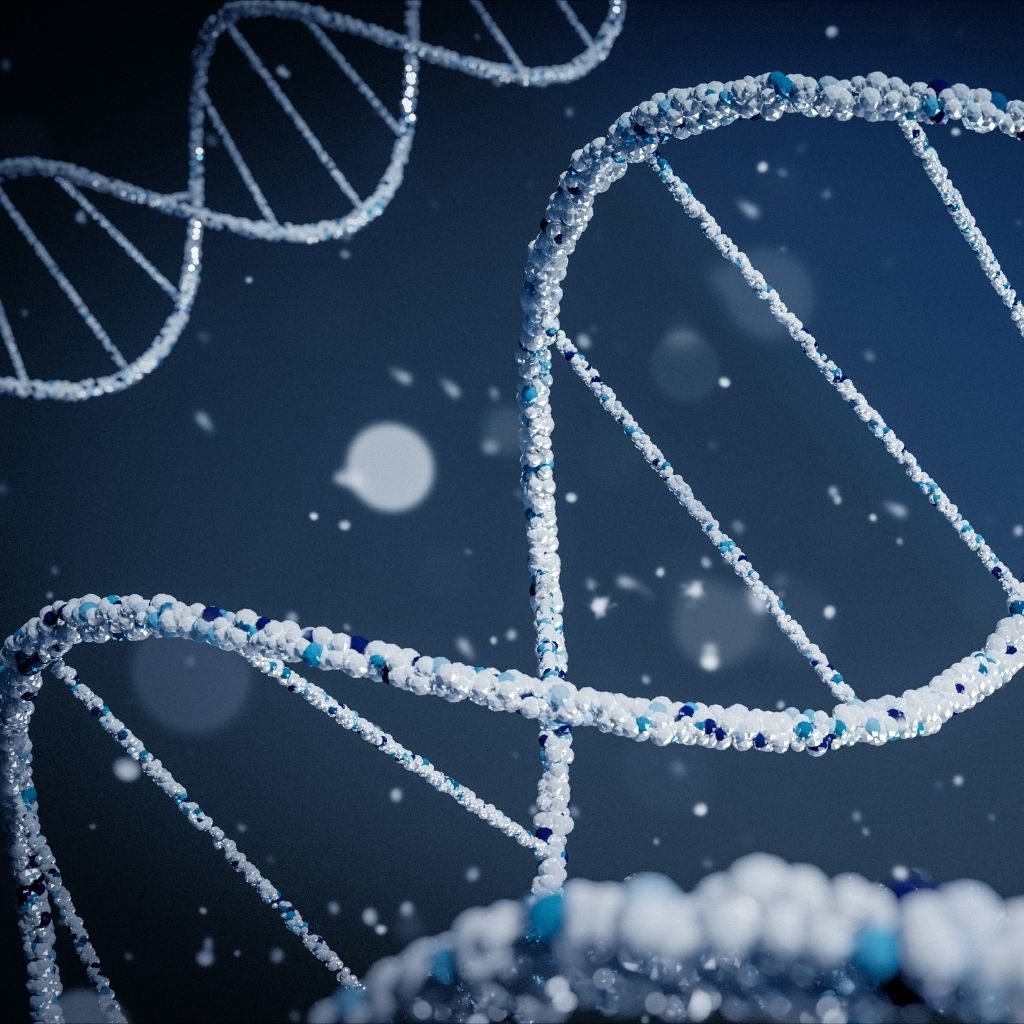Your genes aren’t the cause of disease, but understanding them provides a greater awareness of individual risk factors. Using genetic profiling, your lifestyle, dietary and environmental medicine can be personalised to reduce the risk of certain diseases and symptoms.
With a greater understanding of why some people experience health conditions differently from one another, it becomes easier to see how diet, lifestyle and environmental aspects of life could be leading to unwanted symptoms.
You can make healthy choices with greater precision when you understand your genetic profile.

The technology for DNA testing and whole genome sequencing is rapidly advancing. Genetic testing is growing more common in Australia and changing how we approach health and disease management.
Not so long ago, gene testing was a slow and expensive process, and not commonly used as a clinical tool. It’s now easier to get your DNA collected, tested, and reported back to you in a shorter timeframe. What used to take months now be completed within weeks for a full genetic report.
With these advancements, DNA testing is becoming increasingly popular in healthcare settings – more knowledge is gaining in the areas of clinical genetics, pharmacogenetics and nutrigenomics. As clinical practitioners learn the benefits of utilising genetic testing, they’re finding new ways to help identify risks of diseases and work to prevent these for patients.
Eating for your genes
Nutrigenomics (aka. nutritional genomics) is the relationship between nutrients and genetic expression. Genetic variations and nutritional intake can impact our health, disease risk and symptom management.
In clinical practice, DNA testing can help to identify your genetic predispositions and risks to certain diseases – such as cardiovascular disease.
Nutrigenomics helps to direct lifestyle and dietary changes by providing insight and understanding into current illness. It also helps to prioritise treatment strategies and know what to monitor in terms of associated health risks.
With DNA testing, you’ll have a deeper understanding of your own genetic makeup and why food interacts with your body in certain ways. This is an impressive motivator when you know how certain dietary and lifestyle changes may influence you directly.
It’s important to note that nutrigenomics does not diagnose nor determine the cause for illness and disease. It is a useful tool for examining the current health status of an individual and identifying risk factors of current or future health complications.

Nutrient metabolism
Genetic testing can help determine your need for certain nutrients and analyse how they are utilised within the body.
Nutrient absorption, biochemical signalling, and the production and regulation of hormones and proteins can all be influenced by your genetic code. When a genetic variation is present, it can potentially affect a wide range of processes within the body.
Personalised nutrition helps determine your need for certain nutrients based on how your dietary intake and/or genetics influence your health.
Key nutrients often considered when looking at a person’s genetic profile can include:
- Vitamin A
- B vitamins
- Vitamin C
- Vitamin D
- Choline
- Folate
- Essential fatty acids
- Antioxidants
- Minerals, such as manganese, selenium, magnesium, copper and zinc
A commonly known example of a genetic variation is the MTHFR gene. Variations of this gene can impact a process known as methylation, which is essential for folate metabolism. Folate plays a role in cellular growth and DNA repair — and is especially important during pregnancy.
Preconception care and pregnancy
Folate is well-known as a key nutrient during pregnancy to prevent infant neural tube defects. As a part of pre-conception care, it is worth testing for a variant of the MTHFR gene[1] to supplement accordingly in the early stages of pregnancy.
Other genes may also be tested as part of a preconception care plan. Androgen and oestrogen metabolism, as well as methylation and antioxidant status, can have a profound impact on sperm and egg quality. Preconception care may help to assist in fertility success and optimise foetal outcomes, improving lifelong health, beyond the pregnancy stage.
Metabolic disorders and weight loss
DNA testing may help to identify risk factors for metabolic disorders, such as cardiovascular disease, obesity and type 2 diabetes. By knowing your personal genetic risk of these diseases, you can make educated changes to your nutritional, lifestyle, and environmental impacts on your health and longevity.
Weight loss can be much harder for some people — genetics might be why.

Oxidative Stress
Liver detoxification
The liver’s phase 1 and 2 detoxification pathways can be affected by genetic variations, diet, and lifestyle factors. Due to our increased daily exposure to environmental toxins, the risk of disease for some individuals is based on their genetic ability to detoxify and eliminate reactive oxygen species.
Detoxification pathways may be fast or slow depending on your genetics. A key example is that some people metabolise caffeine slower than others and may need to drink less coffee.[2]
A low tolerance for environmental toxins (such as benzene) can become a serious health hazard for some people, increasing the risk of certain cancers.[3] Nutrigenomics can help in determining the best next steps for a person who may be more at risk for certain health complications based on their current nutritional status and environmental exposures.
Antioxidants and inflammation
Inflammation is an underlying factor for many chronic diseases, chronic pain, neurological conditions, and general health.
Determining potential genetic risk factors of increased inflammation can help to prioritise treatments in patient care. It also helps pinpoint which investigations are required for the management of nutrient status and dietary requirements.
Our antioxidant status can affect an our ability to combat free radicals and oxidative stress. Genetic profiling can help understand how susceptible an individual may be to the harmful effects of free radicals and their increased risk for developing some diseases.
More specifically, it can help to determine our susceptibility to certain dietary or environmental factors. These can include looking at a person’s risk for genetic diseases, like coeliac disease, and understanding why some people experience seasonal allergies worse than others.
Want to know more about how nutrigenomics could help you on your health journey?
Book a nutrition consultation.
Cover image by Anirudh via Unsplash.